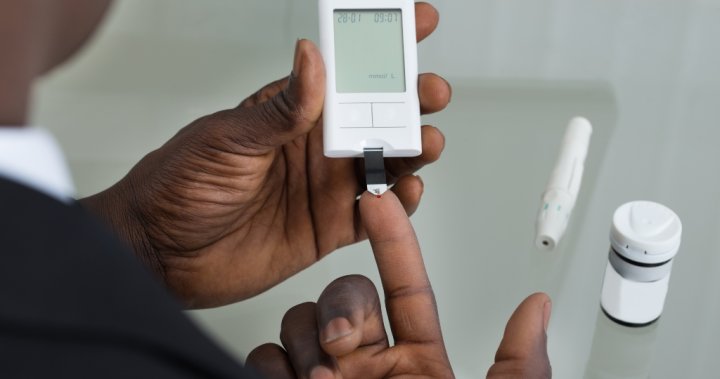A McMaster chemistry professor says scientists are on track to perfect a cell-based therapy to eliminate the need for diabetics to rely on injections and immunosuppressive drugs.
dr Harald Stover, who is also co-founder of Hamilton-based Allarta Life Sciences, says a cure for type 1 diabetes may be five to 10 years away thanks to a synthetic hydrogel transplant treatment local researchers are working on.
“In type 1 diabetes, patients have lost their own cells that normally regulate their blood sugar, so therapy consists of replacing them with stem cell-derived or other insulin-producing cells,” Stover told 900 CHML’s Good Morning Hamilton.
Continue reading:
7 in 10 Ontario nurses say they cannot provide adequate patient care, the study said
“But they have to be protected from the patient’s immune system. We have developed hydrogels that can protect these transplanted cells from being destroyed again by the patient’s immune system.”
More than 5.7 million Canadians have either type 1 or type 2 diabetes.
Overall, about 12 million Canadians are affected by the condition or have prediabetes — a condition that, if left untreated, could progress to type 2 diabetes.
Individuals with type 1 diabetes typically lose insulin-producing beta cells in the islets of the pancreas, leading to problems controlling blood sugar and eventually developing into diabetes.
Currently, treatment for the type 1 condition is essentially limited to medications, usually insulin.
Type 2 can be alleviated with dietary changes, exercise, and weight loss.
Insulin was first discovered as a treatment in 1922 by two University of Toronto medical researchers, Charles Best and Frederick Banting.
It is the same institution that pioneered the insertion of transplanted islets into the pancreas to control blood sugar some 40 years ago.
Stover says the ultimate challenge for any cure is overcoming the human immune system, which he characterizes as “very, very picky” about foreign substances entering the body.
“So many things have worked in rodents and other animals, but so far very little has worked in humans,” Stover said.
As hydrogels represent the potential solution, the next challenge to be overcome is to find a suitable delivery system for the mechanism.
Continue reading:
Can scientists restore cell function after death? New pig study raises questions
Once solved, the technology has the potential to treat other common ailments.
“Cell-based therapies are emerging as a new branch of modern medicine, if you will,” Stover said.
“In principle, any medical indication where a patient lacks an enzyme or hormone, including various forms of hemophilia, perhaps even Parkinson’s, can be treated with transplanted cells that produce an enzyme or hormone.”
Expected to enter clinical trials in 2024, the McMaster technology will target eligible candidates between the ages of 18 and 65 to be recruited through a network of third-party providers.
© 2022 Global News, a division of Corus Entertainment Inc.
#McMaster #professor #cure #type #diabetes #cellbased #therapy #Globalnews.ca





Leave a Comment